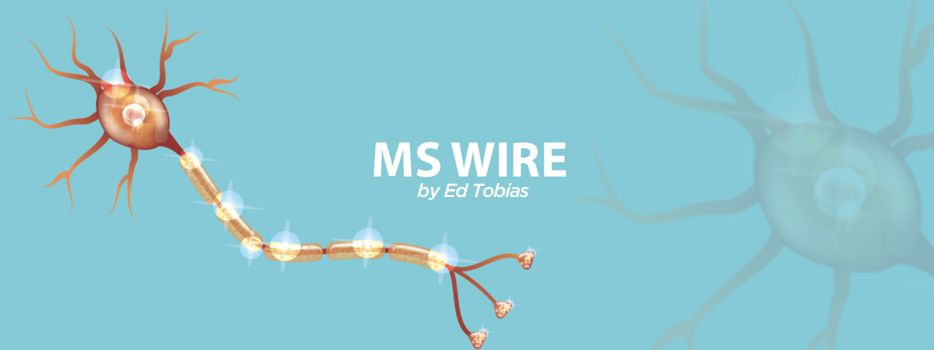MS News That Caught My Eye Last Week: Biotin, Opicinumab, Myelin, Tele-exercise
Written by |

MD1003 Fails to Prevent Disability Progression in Progressive MS Patients, Trial Shows
This is discouraging news for people taking high-dose biotin, many who have been buying it over the counter. Not only do these researchers report that taking 100 mg of biotin (MD1003) three times a day failed to improve walking speed or other symptoms in most test subjects, but also they recommend that it not be used at all to treat progressive MS.
MD1003, MedDay Pharmaceuticals’ high-dose biotin therapy, failed to significantly improve functional ability or walking speed in people with non-active progressive multiple sclerosis (MS), according to data from a Phase 3 clinical trial.
Besides failing to meet the trial’s goals, the therapy was associated with inaccurate results in lab tests, which, if misinterpreted, may lead to serious complications inadvertently caused by an incorrect diagnosis and treatment, the researchers noted.
Click here to read the full story.
***
Biogen Discontinues Development of Opicinumab for MS
Unfortunately, this is another failure. This investigational treatment didn’t even make it to a Phase 3 clinical trial. Based on animal models, researchers had hoped that a combination of opicinumab and Avonex (interferon beta-1a) would encourage myelin repair. But according to Biogen, the combo failed to promote significant functional improvement or halt disability progression in test subjects when compared with a placebo.
Biogen is discontinuing the clinical development of opicinumab, its experimental treatment candidate for multiple sclerosis (MS), based on data from the Phase 2 AFFINITY clinical trial.
The announcement, amid a third-quarter report, indicated that the study failed to meet both its main and secondary goals, without further details. The trial, launched in 2017, was expected to be completed in 2022. Whether participants will continue treatment or not is unclear at this point.
Click here to read the full story.
***
Better Repair of Nerve Insulation May Lead to New MS Treatments
Opicinumab struck out, but maybe this approach to myelin repair will be the charm. It targets a protein that may be involved in damaging nerve insulation. However, human trials are likely to be quite a way off.
There may be a better way of repairing the insulation surrounding damaged neurons that could lead to new treatments for multiple sclerosis (MS), a study suggests.
The data showed that blocking the protein sphingomyelin hydrolase neutral sphingomyelinase 2, or nSMase2, could improve the quality of the myelin surrounding nerve cell fibers, and stabilize its structure. nSMase2 is responsible for breaking down sphingomyelin, which is a type of lipid (fat) molecule present in that protective myelin sheath.
Click here to read the full story.
***
Adults With MS Wanted for 12-week Trial Assessing Health Benefits of Tele-exercise
I like to exercise because I think it helps me physically and mentally. But fear of COVID-19 has kept me out of the exercise room for the past several months. Can I get the same benefit by sitting at home and exercising virtually? That would be nice, and I’ll be watching this study for an answer.
Adults with multiple sclerosis (MS) and other neurological disorders are being recruited to take part in a 12-week clinical trial that aims to assess the health benefits of home-based tele-exercise — performed while seated — led by the Burke Neurological Institute, in New York, according to an announcement from the Multiple Sclerosis Foundation.
Regular exercise and being physically active are known to have multiple health benefits, such as increasing muscle strength and flexibility, improving the heart’s ability to pump blood, and improving a person’s mental well-being.
Click here to read the full story. Scroll to the end to get the study’s contact information.
***
Note: Multiple Sclerosis News Today is strictly a news and information website about the disease. It does not provide medical advice, diagnosis, or treatment. This content is not intended to be a substitute for professional medical advice, diagnosis, or treatment. Always seek the advice of your physician or other qualified health provider with any questions you may have regarding a medical condition. Never disregard professional medical advice or delay in seeking it because of something you have read on this website. The opinions expressed in this column are not those of Multiple Sclerosis News Today or its parent company, Bionews, and are intended to spark discussion about issues pertaining to multiple sclerosis.



Leave a comment
Fill in the required fields to post. Your email address will not be published.